Category: English
-
Is it true that bioplastics are a sustainable alternative to plastics since they degrade quickly in nature?
This claim is certainly false. Some of these so-called “bioplastics” are biobased (made from renewable resources) but not actually biodegradable. Other materials known as “bioplastics” are biodegradable but require very specific conditions to disappear quickly – conditions that are not often found in nature. If biodegradable plastics end up in the wrong place, then they…
-
Is it true that we consume up to a credit card’s worth of plastic every week?
This claim is certainly false. It misrepresents the state of scientific research. While it’s true that plastics have been found in the human body and that microplastics can be ingested or inhaled, the average quantity of plastic which enters the human body is unclear. Scientific estimates still differ widely, but there is no doubt that…
-
Is it true that most plastic waste is recycled, so using a lot of plastic is not a problem?
This claim is certainly false, and very far from reality. Only a small percentage of plastic waste is recycled and turned into material for new products. The majority of plastic waste is landfilled, incinerated (burnt), or ends up in the environment. This is one of the reasons why the current level of plastics consumption is…
-
Is it true that there’s a solid island of plastic in the ocean, visible from space?
This claim is certainly false. There are no “plastic islands” in the ocean which are the size of continents or even countries. While there’s no doubt that plastic pollutes the oceans – just as it does rivers, lakes, the soil, and the air – plastic on the ocean’s surface is not concentrated enough to form…
-
Is it true that 80 percent of the plastic in the oceans comes from land, and 20 percent from the sea?
This claim is uncertain. We could find no credible scientific source to back it up. The percentage of land- and sea-based plastic inputs into the ocean has not yet been calculated on a global level and therefore remains unknown. Scientific studies show that the ratio of land- versus ocean-based plastics can differ widely depending on…
-
Is it true that 90 percent of the plastic in the oceans comes from 10 rivers in Asia and Africa?
You may read this claim frequently, but it is probably false. Such claims misquote the results of research published in 2017. In that study, scientists estimated how much plastic enters the sea from rivers around the world. Ten of these river systems carried most of the plastic, but plastic also reaches the sea in other…
-
Is it true that microplastics are present in drinking water?
This is true – microplastics have indeed been identified in drinking water. But knowledge of the scope and the impacts on human health is scarce. More research is needed to fully understand both the occurrence of micro- and nanoplastics in drinking water and their impacts on human health.
-
Is it true that by 2050 there could be more plastic than fish in the ocean?
This claim is highly speculative, and probably false. We do not know how much plastic is currently in the ocean, and there is no scientific estimate of how much plastic will be in the ocean by 2050. It is also unclear how many fish will inhabit the ocean by 2050.
-
The Understory: Excerpts from Life in the Soil on the BBC
Great to see our audio podcast mini-series »Life in the Soil« continues to be useful! It was a joy to make in collaboration with the awesome people at the Rillig lab at Freie Universität Berlin. The BBC just featured some of our audio interviews in their new four-part series on soil biodiversity, »The Understory: Life…
-
Letters on the Plastics Treaty
Ahead of the negotiations for a new global Plastics Treaty, I teamed up with group of scientists and co-authored two letters published in the journal Science calling for a cap on production and the full inclusion of chemicals. You can find our letters here (production cap) and here (chemicals). I also co-authored a letter to the…
-
Voice-Over: Gender Podcast
So honored to speak the voice-over for Alba Rueda, Undersecretary for Diversity Policy at the Ministry of Women’s Affairs in Argentina, in this podcast by the Heinrich Böll Foundation, produced by Kevin Caners: Heinrich-Böll-Stiftung · The Binary Narrative – Why is it so prevalent? (1/3) | Our Voices, Our Choices
-
Curbing plastic pollution will take more than voluntary, optional, or market-led solutions.
Read our opinion essay at Environmental Health News
-
Book Review: Coming to Grips With the Plastic Crisis
In “Thicker Than Water,” journalist Erica Cirino probes the history of plastic pollution, along with possible solutions. Read my review >
-
Plastisphere Podcast
Follow me on a journey into the world of synthetic polymers, their impacts on nature and ourselves, and the global quest to tackle plastic pollution. Listen here:
-
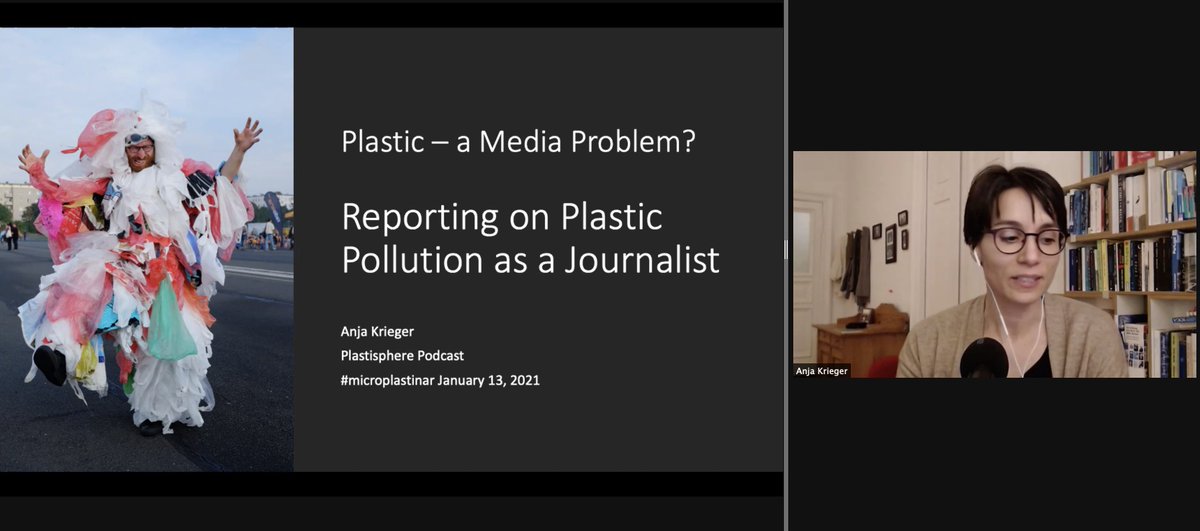
Talk at the #microplastinar webinar series
How reliable are infographics and the figures and facts we find online? What are the current dynamics of the media landscape? And how could they become more sustainable? These are some of the questions I covered in a talk on plastics in the media for the Limnoplast plastic webinar series. I highly recommend to check…
-
Podcast on Soil Ecology
Our podcast Life in the Soil brings you the insights and voices of some of the world’s best soil scientists. Learn about soil biodiversity, why it matters, and how we can protect it. The series is a collaboration with the Rillig Lab, funded through the BiodivERsA project Digging Deeper. RilligLab · Life in the Soil Podcast
-
Plastisphere Ep.10: Chatting about Individual Impact
Subscribe to feed When it comes to solving the issue of plastic pollution, who would you say is responsible? Is it individuals like you and me, is it the corporations that produce plastics or products made from it, or is it the government with its rules and regulations?
-
Plastisphere Ep.9: The Discovery of Plastic Pollution
Plastic pollution seems to be a pretty new issue, right? In the past few years, the topic has been all over the media. But if you explore the history of science, it turns out that the problem really isn’t all that new.
-
Plastisphere Ep 8: Plastics in the Time of the Coronavirus
Subscribe to feed For this episode, Anja tried something new: She asked listeners, researchers and podcasters to send her audio comments on what is happening now during the coronavirus pandemic. In this episode, you’ll hear some of the messages that arrived in her inbox the past weeks.
-
Are bioplastics a greener alternative to conventional plastics?
Confusion about terms such as bioplastics, bio-based, and biodegradable plastics makes it hard to identify — and make — the environmentally responsible choice. Article on Ensia, republished by Undark Magazine, The Revelator, The Wire, and others.
-
Plastisphere Ep.7: Confused about Bioplastics?
What happens if bioplastics end up in the environment? In this episode, Anja takes a closer look at synthetic polymers marketed as more environmentally friendly. Can they contribute to a healthier planet, and in what way?
-
Plastisphere Ep.6: Traces in the Soil
Subscribe to feed Plastic pollution also affects the soil, the thin layer of ground that feeds all of us. For a long time, this terrestrial plastic has been overlooked. Now scientists are starting to investigate the extent and impacts of plastic pollution in the soil and in the ground. What do we know about them?
-
Plastisphere Ep.5: Message from Midway
Subscribe to feed Chris Jordan has taken some of the most iconic pictures to shape our image of plastic pollution. He traveled to Midway Island on his quest to photograph the evasive “Great Pacific Garbage Patch”, which is really a soup of microplastics. There, he documented albatross chicks who had died with their guts full…
-
Plastisphere Ep.4: Plastic vs. the Climate?
Subscribe to feed Plastic pollution might be the most visible environmental issue we face today. But there are other kinds of pollution, and they are far harder to see. One of the most dangerous is the huge amount of greenhouse gases that we emit into the atmosphere. In this episode, Anja explores the connections between…
-
Plastisphere Ep.3: Waste Picker Economies
Subscribe to feed Anja calls up Dr. Jenna Jambeck and Amy Brooks from the University of Georgia on a research trip in Vietnam. In many Asian countries, a booming economy is coupled with more people using throw-away items. Informal recyclers and waste pickers who have traditionally sorted the waste cannot keep up. But, like millions…
-
Plastisphere Ep.2: Plastic, the Size of a Virus
Subscribe to feed This time on Plastisphere, Anja goes on a lab tour with Alexandra ter Halle from Paul Sabatier University in Toulouse. The chemist and her team were the first to detect nanoplastic in the open ocean – plastic so small that it is comparable in size to a virus. What do we know…
-
Plastisphere Ep.1: Welcome to the Plastisphere
Subscribe to feed In this introduction to the Plastisphere podcast, Anja takes the listener on a journey back in time, from a remote plastic beach on the Big Island of Hawaii to the factory of a big chemical producer making bioplastics. She shares what she has learned about the issue of plastic pollution in the…
-
In Schleswig for Undark
Schleswig is a small town in the North of Germany. This spring, a major plastic leak there sparked a debate in Germany: Can a circular economy include shredding food waste and packaging together? For Undark, I went to Schleswig to find out what had happened:
-
For the sake of science, it’s time to break ranks.
Researchers are calling for a change in the evaluation process to recognize the importance of reproducibility. Bibliometric indicators that reward scientists for publishing frequently in high-ranking journals — but not for making their methods accessible — are a major cause of the reproducibility crisis, according to researchers at the latest EuroScience Open Forum (ESOF). Read…
-
Podcasts from the Climate Summit
For the Institute of Advanced Sustainability Studies (IASS)
-
Phasing Out Nuclear in Germany
Radio report for PRI’s The World
-
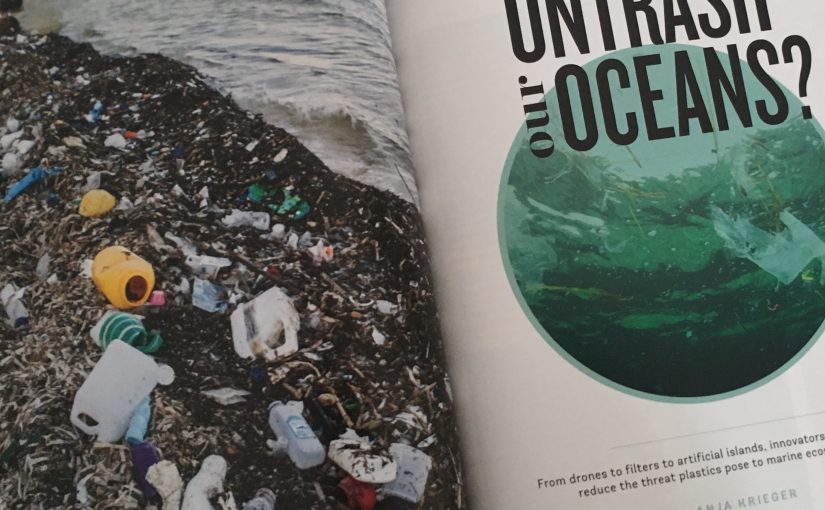
Ensia Best of Year
My long read: “What will it take to get plastics out of the oceans?” featured in the “Ensia Best of Year” print edition (online on Issuu)
-
Equality or Excellence?
Germany’s Excellence Initiative was highly debated. With its successor approved, scientists are asking whether equality and scientific freedom can be preserved in a world of competition. Read my article in Nature Outlook
-
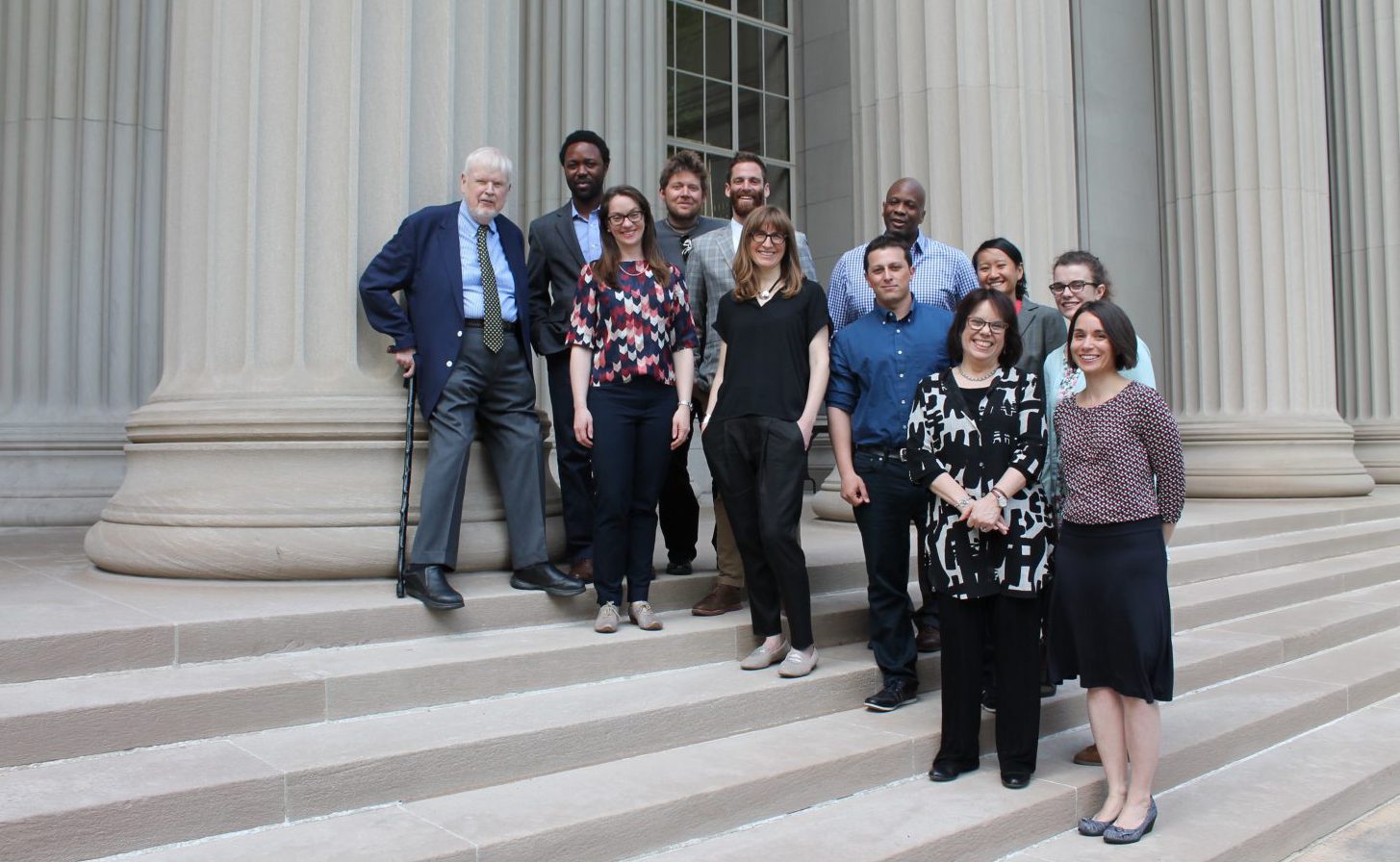
Knight Science Journalism Fellowship
Along with nine Fellows from Argentina, Canada, and the US, I spent nine months as a 2015-2016 Knight Science Journalism Fellow in Cambridge on the US East Coast. Above is a photo of our graduation day, with (left to right): KSJ Founding Director Victor McElheny, Ashley Smart, Courtney Humphries, Christopher Ketcham, Zack Colman, Sasha Chapman,…
-
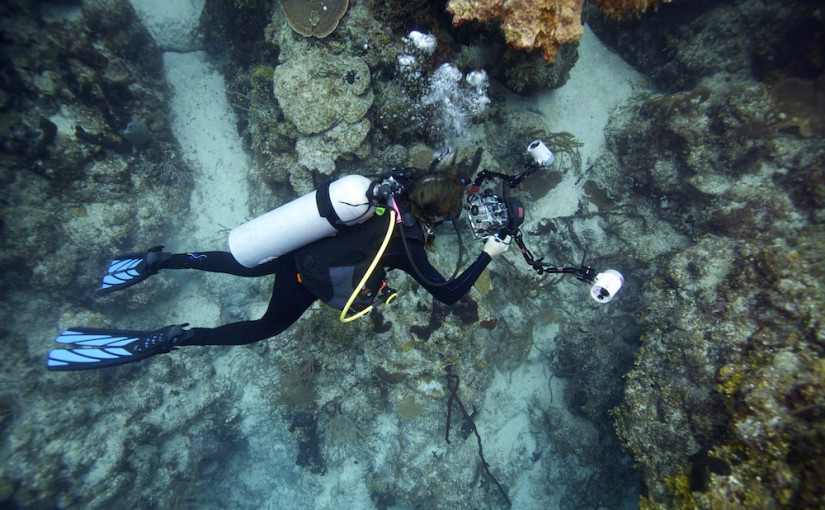
Sasha Chapman Underwater
This winter, MIT physicist Allan Adams and underwater photographer Keith Ellenbogen teamed up to turn a coral reef into their classroom. It was an experience Sasha Chapman, one of their students, will never forget.
-
Underwater Emergency Exits
Daniel Stepputtis of the Thünen Institute of Baltic Sea Fisheries explains how to reduce bycatch with smarter fishing nets.
-
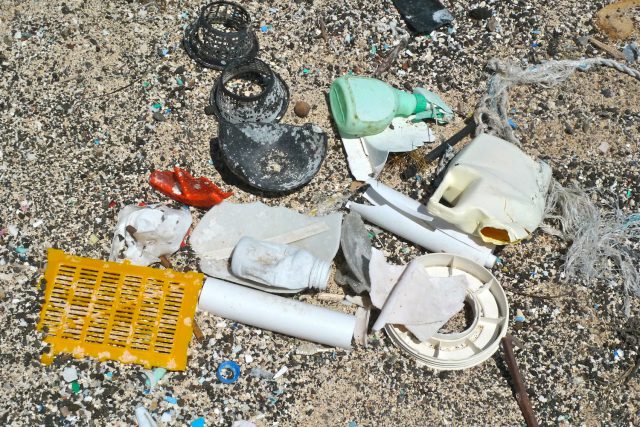
What will it take to get plastics out of the ocean?
From drones to filters to gigantic cleaning arrays, innovators are working to reduce the threat thousands of tons of trash pose to marine ecosystems. But how realistic are their plans, and how much of a difference can they really make? Read my article on Ensia An Earth Journalism Network Future Oceans Story, re-published under CC-BY…
-
Bioluminescence
-
A “Small Miracle”: German Media on the Paris Agreement
Paris has produced a “decisive signal for converting the economy from coal, oil and gas to clean energy, not only in the rich countries,” comments Zeit Online. Taz – die tageszeitung calls the agreement “revolutionary” and “a small miracle.” However, “the discrepancy between the goals agreed on in Paris and the countries’ actual climate policies…
-
Solar Pilots: Piccard and Borschberg
My interview with André Borschberg and Bertrand Piccard on flying a solar airplane, their tour around the world, and how their technology could advance sustainable progress on the ground.
-
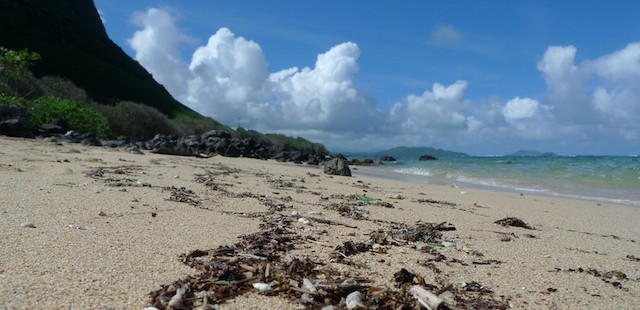
Deep-Sea Microplastics
— Report translated from German — According to a recent study, 270,000 tons of plastic waste are floating in the world’s oceans. That sounds like a lot, but the annual production of plastic is over a thousand times higher. So scientists are starting to wonder: Has the inventory of plastic in the oceans just scratched…
-
The Dream of Green Aviation
As more and more of us are flying around the globe, aviation is taking an increasing toll on the environment. Is there a way to make our trips to far-away islands or family across the country more sustainable? In this feature series, my co-author Gerhard Richter and I went on a journey to Think-Tanks and…
-
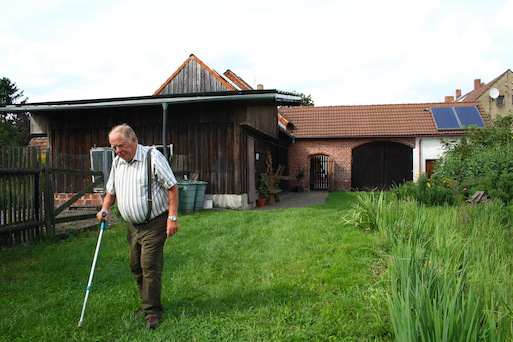
Transition Struggles
Italian journalists Silvia Giannelli, Elena Roda, and I teamed up for a joint project on the energy transition in our countries. The research was co-funded by the Council of Europe’s Mediane program, allowing us to conduct interviews in both Italy and Germany. Here you can read about the outcome of our research: RTCC: The energy…
-
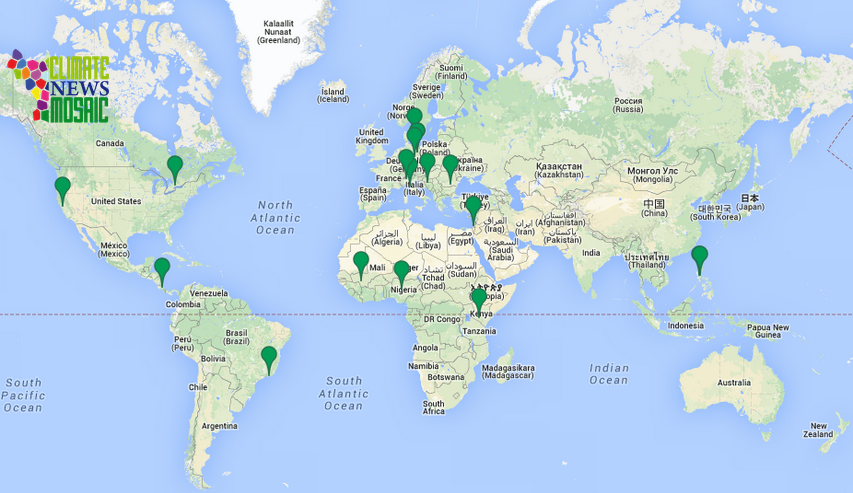
The Climate News Mosaic
The Climate News Mosaic was a collaborative project for journalists from around the world reporting on climate issues. During the COP-19 and COP-21 United Nations Climate Change Conferences in Warsaw and Paris, we ran a daily live blog
-
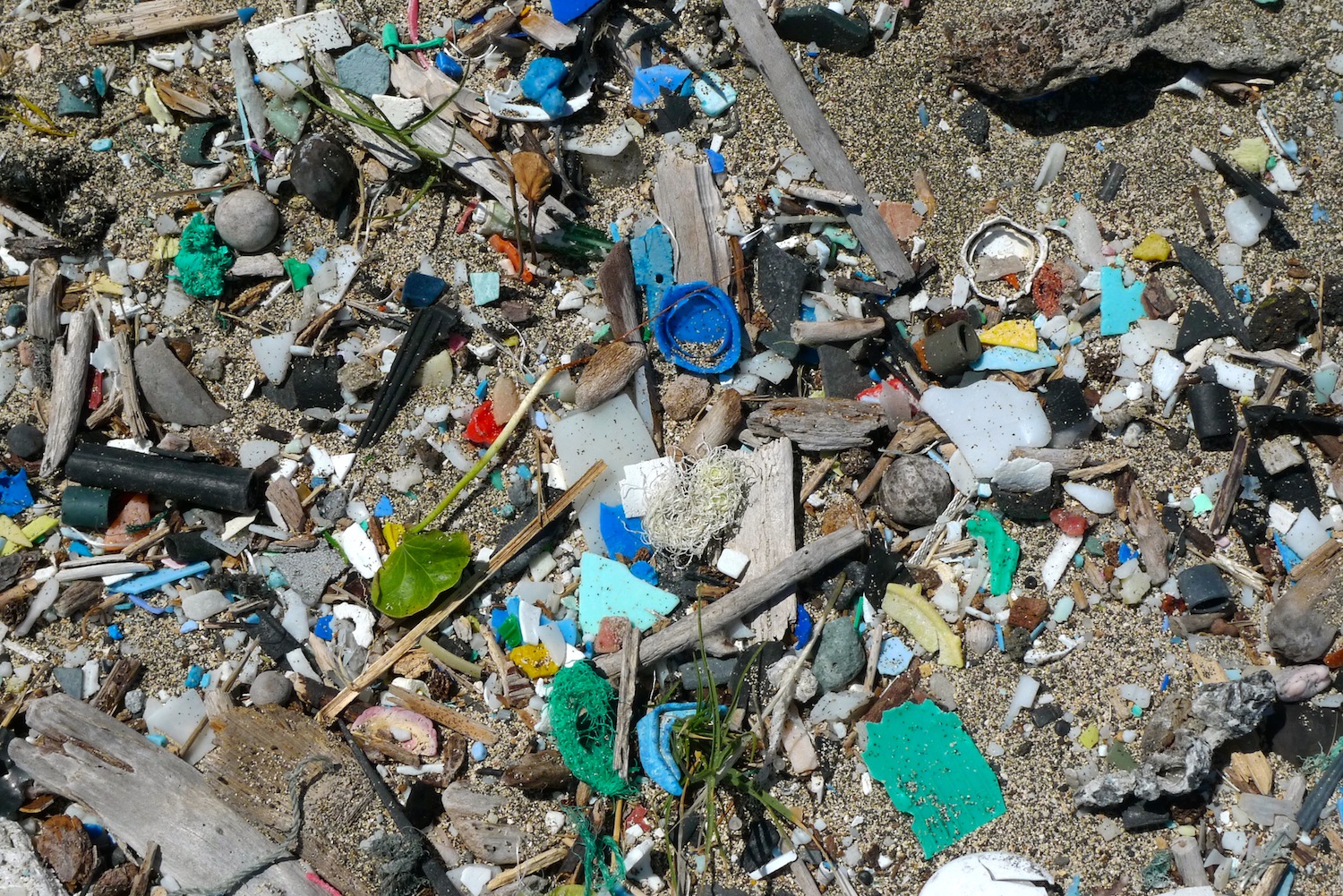
Cleaning the Oceans
— Report translated from German — “Recycled Island creates a self-sustaining habitat floating in the ocean. The urban area houses around five thousand people. Agriculture supports a self-sustaining environment, together with seaweed cultivation.… Natural resources are used to provide food, energy, transport, and comfort.… The entire island is constructed from plastic trash that floats in…
-
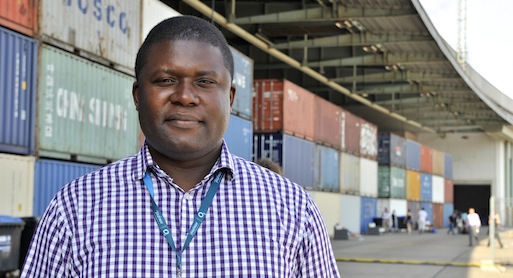
Bandi Mbubi on Conflict Coltan
“There’s nothing wrong with the technology. But we have to ensure that we are not financing the war”. Tantalum is extracted from coltan and used in mobile phones. One of the places where the raw material is mined is the Democratic Republic of the Congo, formerly Zaire. Here Bandi Mbubi spent the first 21…
-
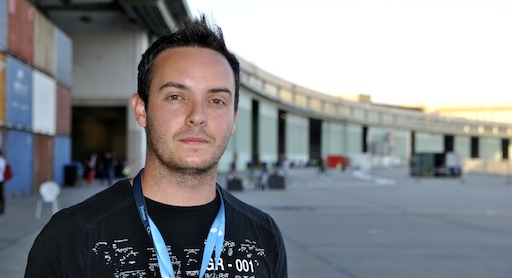
Rodolfo Soler on Saving IT Energy
Rodolfo Soler is a 23-year old mechanical engineer from Spain specializing in thermal power plants. He believes that we waste a lot of energy by failing to chose the right devices for the tasks we want to perform: For simple tasks like browsing the web or watching a video, we don’t need powerful computers…
-
The Hungry Sea Urchin
Sun, beach, and volcanic rock: the Canary Islands are a paradise – not only for tourists. An underwater sea urchin has made himself really comfortable there. If you have been on the beach, you might have stepped into one of its pointed spines. Ouch, it pricks! The sea urchin called Diadema antillarum has extremely long…
-

Nikolai Maximenko and Gisela Speidel on Plastic in the Oceans
In early 2011, I had the chance to meet with Nikolai Maximenko and Jan Hafner, oceanographers at the International Pacific Research Center in Hawai’i, and talk to them about the problem of marine debris and plastic trash in the oceans.
-
Live Radio Talk on Bioplastics
— Report translated from German — How sustainable are bioplastics? Can they save the oceans from marine litter? I investigated the issue from the supermarket to the plastic producer, and summed up my research in this live-talk for German radio: